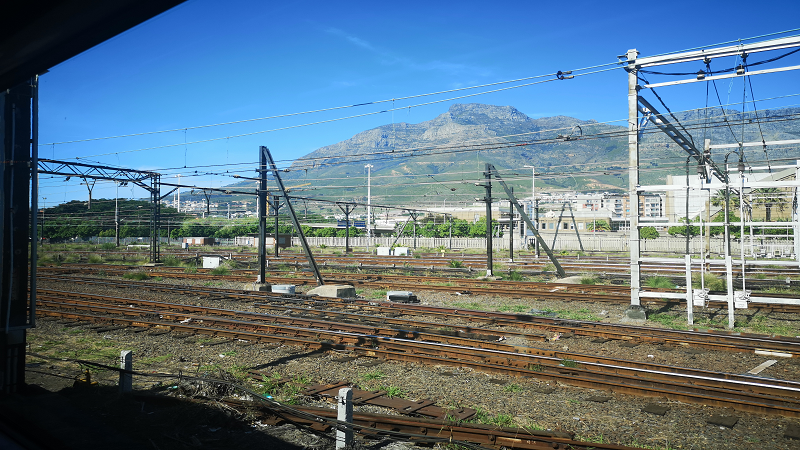by Tauhierah Salie
The Congress of South African Trade Unions (COSATU) is determined to hold government accountable for failing public transport services in Cape Town, through protest action in February. Delayed or cancelled trains, congested buses, the probability of being robbed or assaulted, risk of losing your job and constant battle to stay on top of your finances; are among the issues commuters in the Mother City grapple with on a daily basis. The local railway service was dubbed “Metrofail” as vandalism, cable theft, arson attacks and increased criminality impacted the railways’ ability to provide a proficient service.
Western Cape community safety MEC Albert Fritz has been calling on the public to submit comments that will assist provincial police ombudsman, Johan Brand, to complete his investigation into SAPS’ inability to curb deliberate attacks on railway infrastructure. According to Fritz, the province has lost more than 213 coaches, valued at R6m each, in arson attacks since 2014.
Similar reasons have impacted the Golden Arrow Bus Services (GABS) and the MyCiti bus services, who have suffered major losses.
COSATU Western Cape Provincial Secretary Malvern de Bruyn said the rail and bus services have experienced “a total decline” and has affected “the poorest of poor commuters.”
“You’re not safe on the trains, always late, it gets cancelled without prior notice and ultimately the workers are the ones that suffers.”
“(Say) they missed a train… when they get to work they are subjected to disciplinary measures, some of them even lost their jobs because of late coming or absenteeism. The employers are not even worried, they know the crisis that we are faced with. The City and Provincial government should do more to make sure we have a proper rail system,” he elaborated.
The provincial secretary stated that Cape Town will be brought to a standstill late February, as the 200 000-strong workforce will embark on protest action.
“It will be one of the biggest marches in a very long time. We will make sure that this strike will be a successful strike. Don’t strike for the sake of striking, it’s a tool we are using to give them a wake-up call.”
“Government should sit and work on a proper plan. They see there’s shortage of buses, they know that trains are in a crisis… They should’ve sat around a table and said ‘lets sit and see what best we improve the services.
He further pointed to the lack of collaboration within the public transport sector.
“MyCiti buses only service a small number of people in the province. Why can’t they send some of the busses to assist with transport (when the trains give problems)?” questioned de Bruyn.
He also disagreed that the City of Cape Town’s call to manage the Metrorail service will be for its benefit.
“They should stop playing politics with the lives of our people. It’s an issue between different spheres of government and they’re more worried about politics than sorting out the real issue.”
COSATU said it had last year handed a memorandum to National Economic Development and Labour Council (Nedlac) and failed to respond. The 24-year-old council mediates dialogue between government, business, labour and community stakeholders.
De Bruyn added that the lack of response prompted discussions within management and thereafter obtaining a certificate to legally apply for a strike.
“The respondents are not serious to resolve the issue – they basically abandoned the process. They failed to respond to our demands despite numerous communications to do so.”
Meanwhile, on 23 January, PRASA Administrator Bongisizwe Mpondo announced a three-phase plan to turn the ailing entity around. In summary, the plan includes stabilizing the agency, executing and accelerating efficiency and thereafter ensuring the agency’s continuity. Mpondo dedicated three months to each phase, with many questioning how realistic these aspirations are.
Also speaking at the briefing, PRASA regional Manager Richard Walker admitted that the service has a long way to go, pointing out that of 88 trains needed to service Cape Town commuters, only 33 are fully functional. That Wednesday a train carriage was set alight, bringing that number down to 32.
Walker noted however that a new security contract is expected to be signed next month which will improve the safety of commuters and rail infrastructure. This contract will take the eventual form of fencing to combat vandalism and cable theft. An increase of visible security personnel in trains and on stations also hopes to deter criminal activity.
Resuming the Cape Town Central Line is also a priority, with hopes to restore a limited-service by October and full service by April next year. The line appeared in a Metrorail statement in December 2019 and was among several others across the country that have been severely impacted by vandalism and cable theft.
Meanwhile, the City Mayco member for transport Felicity Purchase said that a solution is still being sought to get the MyCiTi N2 Express service, which was ‘suspended’ since June 2019, back up and running. Speaking to VOC in early January, Purchase noted that it must be done in accordance with the applicable legal framework. The express services usually catered to an estimated 4 000 Khayelitsha and Mitchells Plain commuters on a daily basis.
COSATU’s de Bruyn appealed to the affected pubic to join the demonstration on Thursday, 20 February 2020.
“We appeal to the communities and workers to support the strike because this is a just call. they must fix the railway line and trains services and give security to our people,” said de Bruyn.
VOC






 WhatsApp us
WhatsApp us 

